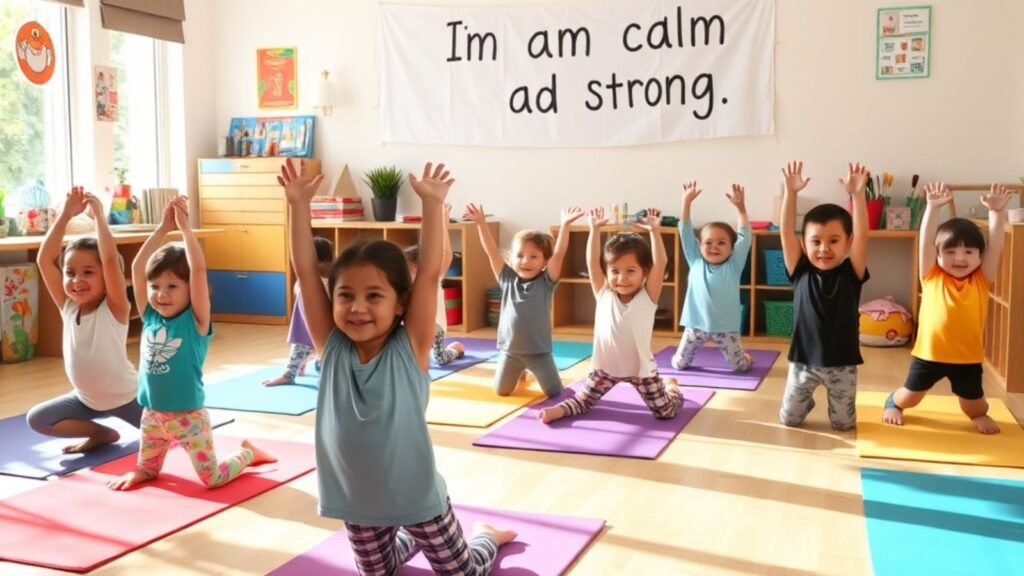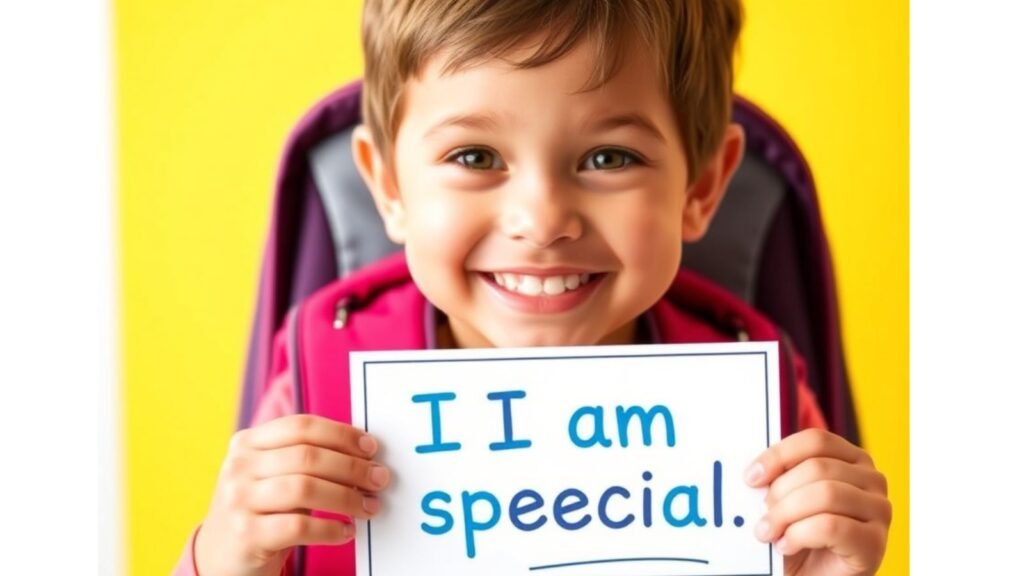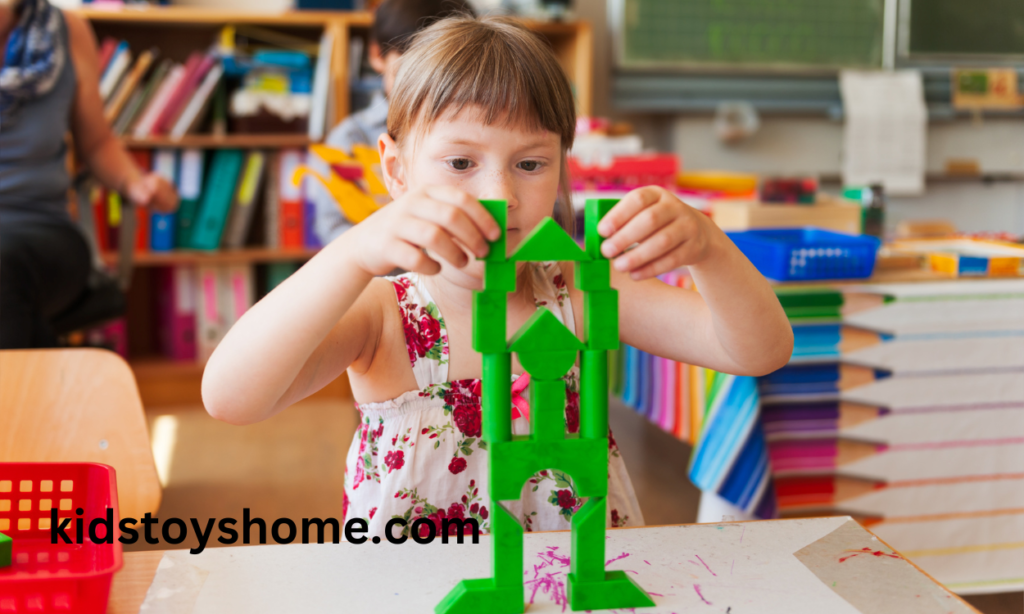As a parent, I’ve seen how powerful positive affirmations can be for building a child’s confidence and resilience. In our home, we’ve made it a daily habit to start the day with simple phrases that help shape a healthy mindset. Kids are like sponges, they absorb everything, and with consistent self-reinforcement, they begin to see themselves as capable, deserving, and full of self-worth. That’s why using affirmations like “I am strong,” “I can do it,” or “I am loved” truly helps in promoting positive thoughts and reducing negative self-talk. I recommend keeping them simple, playful, and light, especially with younger children. My daughter has Banana Cards with 48 colorful statements on them, and every morning, she picks one from the list to recite before school, it’s part of our fun routine now.
One thing I’ve learned from years of parenting and teaching is that practice makes affirmations work. Don’t overcomplicate it, just repeat the words daily, post them in your kid’s room, and talk about how these sayings can be used in real life. Even during challenging or uncertain times, keeping things hopeful through ideas and phrases helps both kids and adults stay grounded. It’s a great way to ease negative feelings and start the day strong. Whether you’re an educator or a parent, this small step can have a big impact. From a personal perspective, having seen kids use affirmations to shift their self-image, I believe every child deserves this powerful tool to grow with love, happiness, and success.
What Are Affirmations for Kids?

As someone who has worked closely with young children, I’ve noticed how quickly they can pick up on both positive and negative thoughts. That’s why using affirmations is such a helpful tool. These are short, easy statements that your child can repeat daily to reinforce a positive mindset. When my son first started using them, his confidence slowly started to grow—just by saying simple lines like “I am brave” or “I can do this.” These affirmations aren’t just feel-good words; they are a way for kids to build a strong inner voice that helps them counteract fear, doubt, and emotions that might otherwise overwhelm them.
The beauty of these affirmations is how they work to strengthen a child’s belief in themselves. Since they are easy to remember and take only a few seconds to say, it becomes a natural habit. Even if a child has had a rough day, starting the next one with a few positive phrases makes a huge difference. In my experience, the earlier we introduce these tools, the more rooted these strong self-beliefs become in a child’s life. That’s the magic of helping kids grow up knowing they are capable, loved, and ready to face challenges with a strong heart.
How Belief Shapes a Child’s Mindset

In my years of parenting and working with young learners, I’ve seen how much a child can change when they begin to truly believe in themselves. When we train our minds to focus on the positive rather than the negative, we give ourselves an advantage. This is especially true for kids. Using affirmations helps create new mental pathways that reinforce healthy thoughts in the brains, making children more resilient and less affected by the influence of doubt or fear. With time, this focus on positivity naturally helps reduce harmful self-talk and builds lasting confidence and a stronger sense of well being.
The Power of a Positive Start
When we talk about starting the day right, the power of a good mindset can’t be ignored. It sets the tone and has a significant impact on a child’s overall attitude. Incorporating morning affirmations allows children to develop traits like self-confidence, optimism, and a better mood. I’ve seen students go from quiet and unsure to cheerful and motivated, just by adopting a few morning affirmations daily. This shift affects not only their emotional state but also their behavior and academic performance.
Lasting Benefits of Affirmation Routines
The long-term benefits of incorporating affirmations into a child’s routine are worth noting. There’s a visible boost in self-esteem, a more positive attitude, and a noticeable drop in stress and anxiety. Plus, their grades go up, and their social skills improve. I’ve personally used this approach in classrooms and at home, it’s simple but incredibly effective. When children believe in their ability to grow, they naturally do.
How to Create Morning Affirmations for Kids
- The best way to create strong morning affirmations for kids is by making them simple, positive, and age-appropriate.
- Use your child’s unique strengths and positive qualities as the basis for each affirmation.
- Focus on specific areas where they may need extra encouragement or support, like behavior challenges or improving social skills.
- In my experience, personalized affirmations connect deeply with kids and help them grow more confidently and intentionally.
80 Positive Affirmations to Start the Day

- “I am smart and ready to learn new things today.”
- “I am kind and helpful to everyone around me.”
- “I am strong and can handle anything that comes my way.”
- “I believe in myself and my dreams.”
- “I am loved by my family and friends.”
- “I make good choices every day.”
- “I am brave and try even when things are hard.”
- “I am proud of who I am.”
- “I choose to be happy today.”
- “I can do hard things.”
- “I am responsible and take care of my things.”
- “I treat others with respect and kindness.”
- “I am unique and that makes me special.”
- “I am grateful for all that I have.”
- “I have the courage to speak up.”
- “I am a good friend to others.”
- “I am important and my voice matters.”
- “I am calm and in control of my emotions.”
- “I trust myself to make good decisions.”
- “I believe that I can do anything I set my mind to.”
- “I am creative and full of great ideas.”
- “I forgive myself when I make mistakes.”
- “I always try my best.”
- “I bring joy to others.”
- “I am full of potential and greatness.”
- “I have a kind and loving heart.”
- “I listen carefully and speak kindly.”
- “I am growing and learning every day.”
- “I stand up for what is right.”
- “I am confident in who I am.”
- “I choose to focus on the positive.”
- “I am patient and understanding.”
- “I am honest and trustworthy.”
- “I respect myself and others.”
- “I am safe and cared for.”
- “I am a problem solver.”
- “I stay positive even when things are tough.”
- “I love myself just the way I am.”
- “I bring light and positivity wherever I go.”
- “I am a leader and a role model.”
- “I have people who support me.”
- “I am thankful for today.”
- “I am helpful at home and school.”
- “I am full of hope and excitement.”
- “I make others feel better with my words.”
- “I enjoy learning and trying new things.”
- “I can share and take turns.”
- “I take deep breaths when I feel upset.”
- “I believe in my ability to grow.”
- “I am proud of my progress.”
- “I face challenges with a smile.”
- “I know it’s okay to ask for help.”
- “I am joyful and full of energy.”
- “I am gentle and caring.”
- “I am learning to be more confident every day.”
- “I choose peace and kindness.”
- “I can be a good team player.”
- “I know I can make a difference.”
- “I am proud to be me.”
- “I am learning from my mistakes.”
- “I love the person I’m becoming.”
- “I am capable of greatness.”
- “I can turn my ideas into action.”
- “I handle changes calmly and confidently.”
- “I brighten the world with my smile.”
- “I am loved and appreciated for who I am.”
- “I control my attitude and stay positive.”
- “I take care of my body and mind.”
- “I am excited about today’s adventures.”
- “I am respectful to everyone I meet.”
- “I trust that good things are coming.”
- “I learn something new every day.”
- “I can take chances and try new things.”
- “I am ready to do my best today.”
- “I am helpful and thoughtful.”
- “I can be anything I want to be.”
- “I am proud of my hard work.”
- “I stay focused and never give up.”
- “I am full of love and light.”
Tips for Including Affirmations in Your Child’s Routine

- Make it a habit by setting aside a few minutes each morning for your child to recite affirmations.
- Create a positive tone for the day by starting with calm and uplifting phrases.
- Use visual aids like colorful posters or fun flashcards to make affirmations more engaging and easier to remember.
- Display affirmations on mirrors, bedroom walls, or study desks where your child will see them often.
- Involve the whole family, reciting affirmations together builds a supportive and positive environment at home.
- Be consistent, even on weekends or during vacations, to keep the routine strong and steady.
- Adjust affirmations as your child grows and develops, reflecting their changing needs and interests.
- Keep them age-appropriate so affirmations remain relevant, effective, and meaningful for your child’s stage of development.
FAQs
What Are Morning Affirmations for Kids?
Affirmations are positive words or phrases used to boost self-confidence, mental strength, and positivity in kids. When practiced regularly as part of a morning routine, they help children start the day feeling motivated, calm, and emotionally balanced. These phrases carry powerful meaning, and children are naturally more receptive to their transformative effects.
Should Kids Do Morning Affirmations?
Absolutely! Morning affirmations are an excellent tool to help kids build confidence and a positive self-image. Since kids are especially receptive to language, they tend to absorb affirmations deeply. Practicing self-affirmations daily can positively influence their self-esteem, especially during sensitive moments or milestones like starting preschool, joining sports, or entering daycare.
At What Age Does Self-Talk Begin?
Self-talk usually begins around the age of three when children start using language to express themselves. This stage is ideal for introducing affirmations because children are forming their understanding of words, speech, and emotional responses. Starting early also helps establish positive habits that support their emotional growth and development
How Do You Give Words of Affirmation to Kids?
Start simple! Use tools like sticky notes on the mirror, a chalkboard in their room, or just recite affirmations during breakfast or the morning drive. Ask your child what makes them feel happy or sad, then build affirmations based on their emotional needs. For example, if a child feels sad about not tying shoes, create affirmations about patience, confidence, and perseverance
When Should Kids Start Morning Affirmations?
Begin as soon as your child starts to talk or shows interest in repeating phrases. Incorporating affirmations during key milestones, like the first day of daycare, preschool, or joining a new activity, is especially effective. These transitions often require an extra boost in confidence, making it the perfect moment to start this empowering habit.
What Is the Best Way to Use Affirmations with Kids?
The best way to introduce affirmations to kids is by encouraging them to repeat positive phrases regularly. You can make use of flashcards, a colorful poster, or write them on walls in their bedroom or playroom. Choose times like bedtime, waking up, or transitions during the day. The goal is to help them believe what they say and to feel good while saying it. This builds a strong, healthy identity that stays flexible. Children can learn to say things like “I’m a good listener” or “I try my best,” even when they’re not feeling perfect.
What Qualities Do Affirmations Help Develop in Children?
Affirmations help children feel capable, understand their value, and grow with a sense of moral character. They learn how to adapt to different situations, become emotionally prepared as they grow up, and build a lasting sense of self-worth. These daily positive words form a base for their self-image and teach them how to approach the world with confidence, patience, and persistence.
How Often Should Affirmations Be Practiced?
For the best impact, affirmations should be practiced with frequency, ideally on a daily basis. This consistency helps make them a natural part of the child’s routine and amplifies their benefits. Repetition in a calm, safe space creates emotional security and reinforces a strong foundation of happiness, success, and emotional strength.
What Are Other Helpful Tools for Kids Alongside Affirmations?
There are additional tools that work well with affirmations,yoga is one of the best! It’s loved by parents and teachers alike and supports physical and mental health. Yoga helps reduce stress and anxiety, improves sleep, and boosts overall well-being. It also increases self-awareness and confidence, reinforcing everything affirmations aim to achieve.
Are There Any Specific Programs for Affirmations and Movement?
Yes! Programs like Cosmic Kids Yoga are beautifully designed for children. They include uplifting music, fun stories, and playful characters that keep kids engaged. The experience becomes imaginative, playful, and fun—making kids feel motivated and truly empowered while learning valuable emotional skills through movement and words.
Conclusion
Reciting morning affirmations with kids is a simple, yet incredibly inspiring way to start the day. I personally enjoy reciting them each morning with my son, as it helps him build inner confidence and sparks real excitement for life. What I’ve found beautiful is how easy it is to get starting, just a small amount of time creates a big impact on your child, encouraging joy and emotional resilience from the very beginning of the day.





